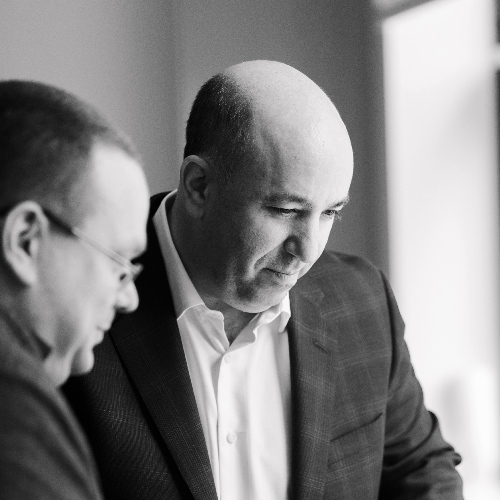Rick Haynes, Permobil’s VP of human resources, understands the universal appeal of the company and its products. “In our business, we realize that disabilities have no geographic or cultural boundaries,” he says. “What connects us across Permobil is that we believe the independence that mobility can bring is a basic right, no matter where you live.”
Based in Sweden, Permobil is a global leader in the mobility industry, with employees in seventeen countries, manufacturing power wheelchairs and developing mobility technologies. Haynes oversees human resources for Canada, Australia, and the Americas. Although coordinating the mission across continents and cultures can be demanding, he says that the fundamental importance of its mission keeps the company focused. From his Tennessee office, Haynes observes a culture of generosity, empathy, and mutual support around the world.
“We believe the independence that mobility can bring is a basic right, no matter where you live.”
Still, there are cultural differences and logistical inconveniences when teams are coordinating conference calls and travel arrangements. Haynes notes that the Swedes, for instance, like to take a substantial holiday of two or three weeks at the end of each summer, while American employees sometimes may even fail to use their allotted vacation days. In Permobil’s case, Haynes ascribes that directly to its serious, user-oriented commitment.
That people focus is exemplified by the fact that Permobil doesn’t maintain an inventory. Rather, the organization builds every chair specifically for an individual, which helps the team keep in touch with the mission. Haynes recalls a time that Permobil delivered an exceptional effort for one military veteran who had returned from overseas to a son born during his deployment. The vet was marooned in a VA hospital until he had his Permobil chair. The weekend of the child’s first birthday, Permobil employees loaded the veteran’s chair into a van and drove it overnight to the VA hospital.
Flying High in HR
Rick Haynes imagined that he would serve in the military as a pilot and then transition into commercial flight. But after back surgery, that path was no longer available. He worked in human resources at American Airlines and then continued in HR with other organizations. During “one of those bad days at work,” he says, a Permobil recruiter called to gauge his interest. He had no previous experience with mobility technology but was struck by Permobil’s vision. “Work is hard, no matter what you do,’” Haynes recalls thinking. “And if I’m going to do this, I’d like for it to make a positive difference.”
Each chair delivery arrives with a card and a signed photograph of a technician who worked on it. New owners often stop at Permobil’s Tennessee facility to meet those builders, and when they do, the Permobil team drops everything to make time for them. These extraordinary moments keep the calling close to the daily effort, which HR takes care to nurture.
This nurturing quality of the culture extends to seeming informality. When CEO Jon Sintorn visits from Sweden, employees at all levels call him by his first name. The informality—paired with professionalism—is something the organization tries to encourage and foster. “There’s an organizational hierarchy, but I don’t think that you really sense it when you’re in this building or in any of our other facilities,” Haynes says.
Now, as Permobil grows rapidly—the Tennessee facility
that opened in 2000 with twenty-seven employees now employs nearly three hundred—Haynes’s priority is to preserve the cultural elements that he thanks for its success. The company’s market share is growing as it continues to make acquisitions of new technologies and to add complementary products to its portfolio. Although some change is inevitable with that growth, Haynes says that HR must curate and create the pace for that change.
“You go through different growth stages, and sometimes leaders can lose focus on the culture and focus on the business,” Haynes says. He calls it a healthy paranoia, the looming concern that Permobil’s continued
growth will erode the culture that makes it such a unique, care-oriented company. “The paranoia comes when we start to sense that there’s a difference. What we’ve struggled with recently is whether it’s different or if it’s just a feeling that it’s different,” he says. Key to navigating the company’s expansions
is the openness of the discourse between organizational levels as well as employee feedback sessions.
True to his mission and to his characterization of Permobil’s commitment, Haynes notes that his career advancement is secondary to the organization. “I’ve never been one to chase a title,” Haynes says. “I just want to do the best that I can and be better today than I was yesterday. It’s the little things that make up the big things.”

